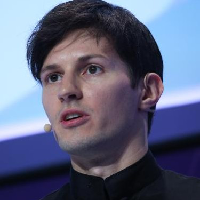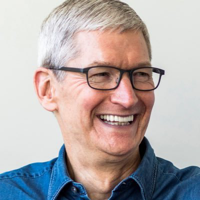George Gilder tipe kepribadian MBTI
Kepribadian
"Jenis kepribadian apa itu George Gilder? George Gilder adalah tipe kepribadian INTJ di mbti, 6w5 - - di enneagram, dalam Big 5, LII dalam socionics."
George Gilder is a consummate example of an INTJ that has consistent and accurate predictions about the next phases of technological revolutions as seen especially in his books Life After Television and now with Life After Google. His ultimate vision of humanity is one where humans further their advancement by using technology as a means of liberation rather than complete replacement of all human endeavors, which then has humans as a truly evolving species. Ni - George has a holistic view of the world and chose to express it through his research in economics. He is known to have pioneered the formulation of supply-side economics during a time when Keynesianism was the mainstream thought. He indirectly created the smartphone when Steve Jobs “read what Gilder wrote and took it to heart". His other books: Telecosm, The Silicon Eye, and The Israel Test were his channelings of Ni need to make bold and deep predictions (convergence into a singularity) about revolutionary innovations which is different from how an Ne user would tend to make groundbreaking, new perspectives/discoveries on abstract subjects (often disregarding grandiose singularities). Even at his old age, his focus on the big picture is what drives him to continue making insightful predictions about the future. Te - George Gilder is no stranger to empiricism. He communicates in an efficiently blunt way. His desire to research supply-side economics was based on empirical facts and likely a skepticism of the dominating models of Keynesianism. George is known to be a fan of Thomas Sowell who is notorious for relying heavily on testing ideas with facts. When he was making a presentation at AEIR, he did so with minimal info needed to get the point across. George also worked as director of the Technology and Democracy Project, demonstrating his organizational skills. Fi - His approach to economics underlines his Fi and he constantly asserts the importance of the individual. Although he could have simply pursued personal activities, he chose to serve presidents most notably Ronald Reagan during the 80s likely out of principle when even Milton Friedman (INTP) chose to distance himself from Reagan in order to retain the autonomy of his ideas. When reading his book Life After Google and notice that he attended many interviews during his old age, you can see that he does so out of a personal wish to reaffirm the ideals of individual liberty once more especially as libertarian ideals become obscure in the more tumultuous period of the age of information. Se - George Gilder can't hear well in interviews. Jokes aside, I really do wish him good health. Anyways, there was this interesting detail I found watching his interview at Uncommon Knowledge while analyzing his predictions on Life After Television, Peter Robinson noted how George did not foresee how impactful the rise of p*rnography was in being a competing force to the human desire for knowledge and productivity during the information revolution. I personally do hope George is right about Big Tech's arrogance of their idea of the eschaton. He may not be so well known to the public today, but his influence in shaping the world today cannot be doubted. Perhaps more people can bring more insights about him in this page's future too.
Biografi
George Franklin Gilder (/ˈɡɪldər/; born November 29, 1939) is an American investor, writer, economist, techno-utopian advocate, and co-founder of the Discovery Institute. His 1981 international bestseller Wealth and Poverty advanced a case for supply-side economics and capitalism during the early months of the Reagan administration. He is married to Nini Gilder, and has four children. He is also the chairman of George Gilder Fund Management, LLC.















